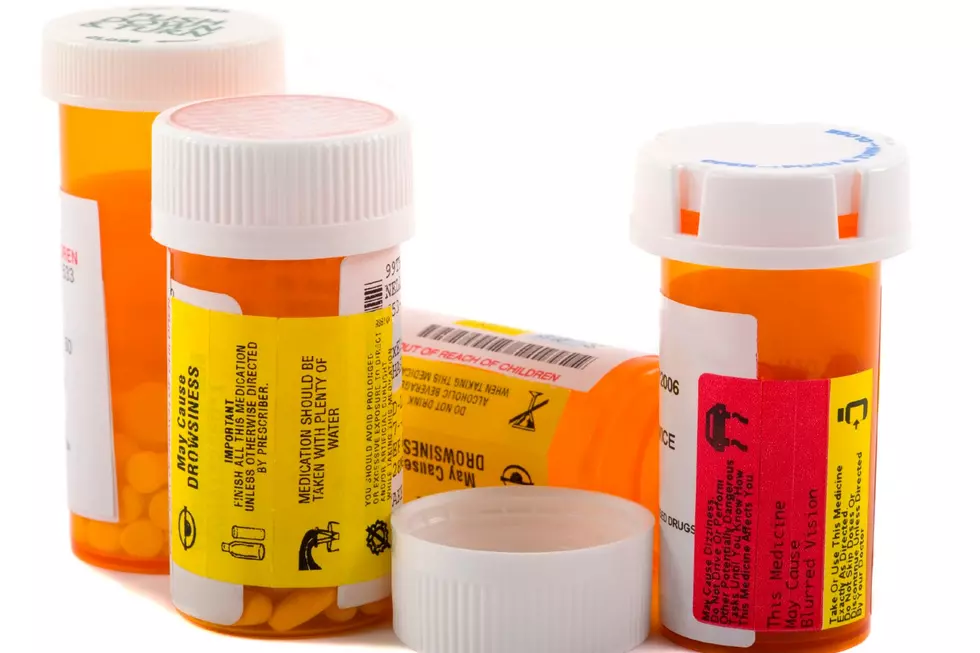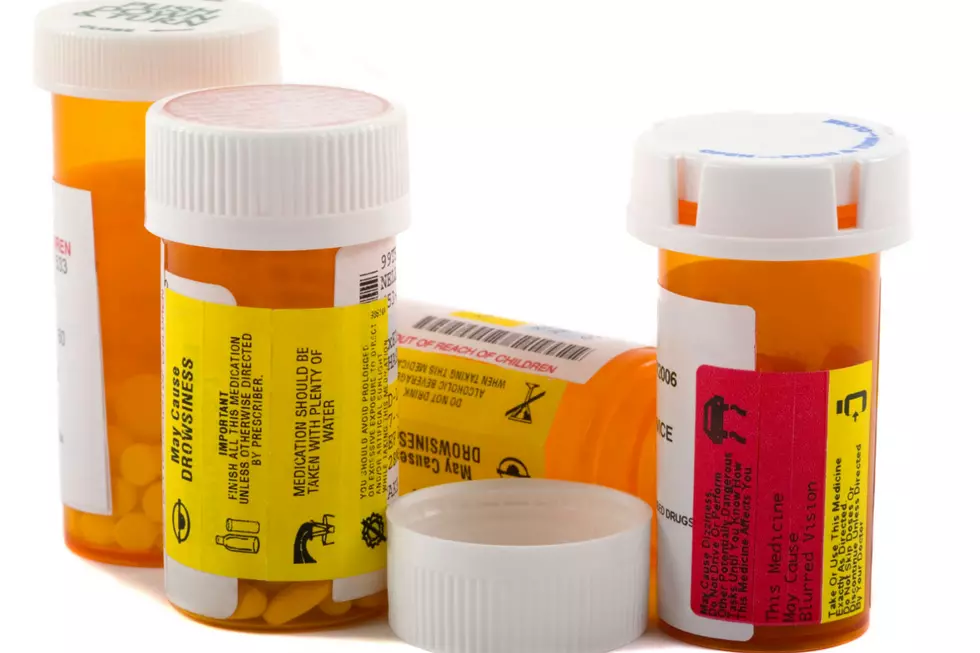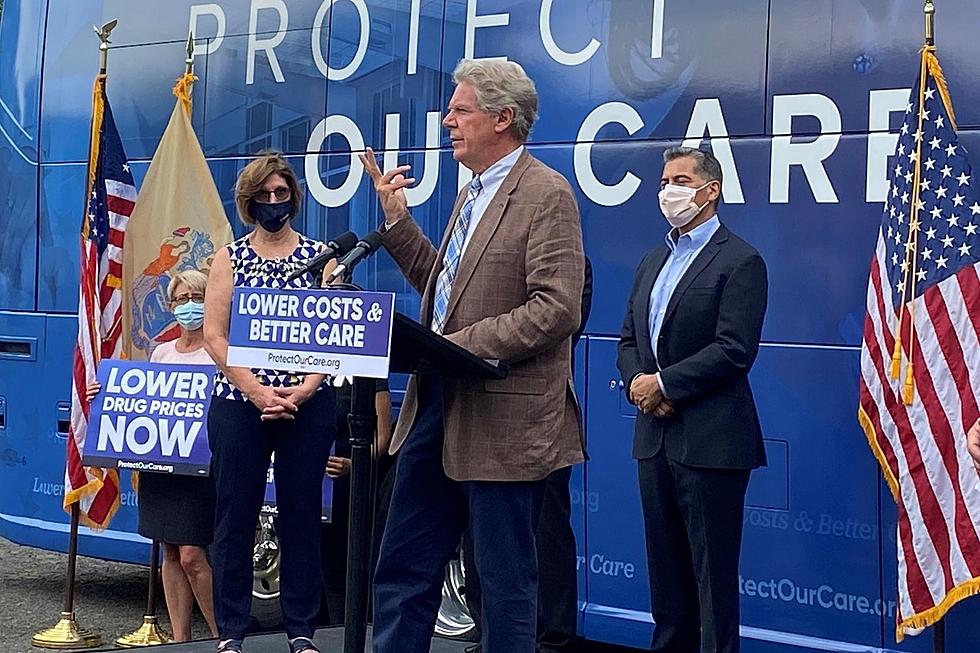
Clinton adds details to plans on prescription drug costs
DES MOINES, Iowa (AP) -- Vowing to build upon President Barack Obama's signature health law, Hillary Rodham Clinton is unveiling a sweeping plan to hold down the rising cost of prescription drugs and target pharmaceutical companies that flood the airwaves with ads.
The Democratic presidential candidate's proposal would place a monthly cap of $250 on covered out-of-pocket prescription drug costs to help patients with chronic or serious health conditions. It would also deny tax breaks for televised direct-to-consumer advertising and require drug companies that receive taxpayers' support to invest in research and development.
"We will start by capping how much you have to pay out of pocket for prescription drugs each month. And we're going to hold drug companies accountable as we work to drive down prices," Clinton said at a campaign event Monday in Louisiana.
Clinton was outlining details of her plan Tuesday at a community forum in Des Moines, Iowa, part of a weeklong push to defend Obama's health care law. The former secretary of state has credited the overhaul with driving down the rate of uninsured Americans and chastised Republicans who have sought its repeal.
Clinton's vocal support for Obama's still-controversial health care law is the latest example of her campaign attaching itself to Obama's record amid a competitive Democratic primary field. Also weighing on the dynamics is Vice President Joe Biden's interest in joining the race, though it's far from certain that he will.
Once a political liability for Democrats, the law has been credited with helping reduce the number of uninsured people from 48.6 million in 2010 to 29 million people in the first three months of 2015. But a recent poll by the nonpartisan Kaiser Family Foundation found that 72 percent of Americans say the cost of prescription drugs is unreasonable.
Driving the concerns about drug costs are high prices for newly introduced breakthrough medications as well as many generics. Insurers and state Medicaid officials have raised alarms about rising costs and the Department of Veterans Affairs recently asked Congress for more money to cover the cost of new drugs for treating hepatitis C infection.
Clinton's campaign said a typical senior on Medicare spends more than $500 annually on out-of-pocket costs to buy prescription drugs and those with chronic health conditions or serious illnesses can spend thousands of dollars a year outside their coverage.
Clinton previewed her message on Twitter on Monday, pointing to a New York Times story about a drug used to treat a parasitic infection that rose from $13.50 to $750 a tablet.
Pharmaceutical stock prices fell after her tweet, as investors worried a Clinton presidency might cut into the profit margins of biotech companies. The pharmaceutical industry and insurance providers would face additional costs under the plan.
The plan received a chilly reception from the pharmaceutical industry, which said it would restrict patients' access to medicine.
"Secretary Clinton's proposal would turn back the clock on medical innovation and halt progress against the diseases that patients fear most," said John Castellani, head of the Pharmaceutical Research and Manufacturers of America in a statement.
Hillary Clinton and her husband, former President Bill Clinton, have released records showing they have been paid at least $1.8 million for appearances at events sponsored by pharmaceutical companies or associations representing pharmacy industry interests, according to tax and financial records between 2001 and 2014.
At least $775,000 of that total came from the Danish multinational pharmaceutical firm, Novo Nordisk. The company, known for its development of diabetes medications, paid Bill Clinton $500,000 for his role in a 2010 Dubai event and $150,000 for a 2007 New York appearance. Hillary Clinton was paid $125,000 by Novo Nordisk to appear via satellite feed for a question-and-answer session during a February 2014 event in Mexico City.
Novo Nordisk also donated between $50,001 and $100,000 to the Clinton family's global charity, the Clinton Foundation. Pharmaceutical interests have contributed between $3 million and $9.5 million to the Clinton Foundation, according to the charity's records.
Health care and the rising cost of prescription drugs have gained attention in the Democratic campaign. Clinton's main challenger, Vermont Sen. Bernie Sanders, has pushed the creation of a single-payer health care system and introduced legislation that would allow Medicare to negotiate lower drug prices with pharmaceutical companies and let consumers import prescription medication from Canada, where costs are cheaper.
"The pharmaceutical industry has become a health hazard for the American people," Sanders said in a statement Tuesday.
Republicans accused Clinton of embracing the health care law to draw attention away from inquiries over her use of a private email system as Obama's secretary of state.
As she did during her 2008 presidential campaign, Clinton would seek to allow Medicare to use its large purchasing power to negotiate lower drug prices. Her plan also seeks to increase competition for traditional generic versions of specialty drugs to drive down prices and offer consumer choice.
The proposal would require health insurance plans to place a monthly and annual limit on covered out-of-pocket prescription drug costs for individuals. The campaign estimated up to 1 million Americans could benefit from the plan annually.
(© 2015 The Associated Press. All rights reserved. This material may not be published, broadcast, rewritten or redistributed)
More From New Jersey 101.5 FM









